Venue cancels Iain Dale event in Hillsborough row
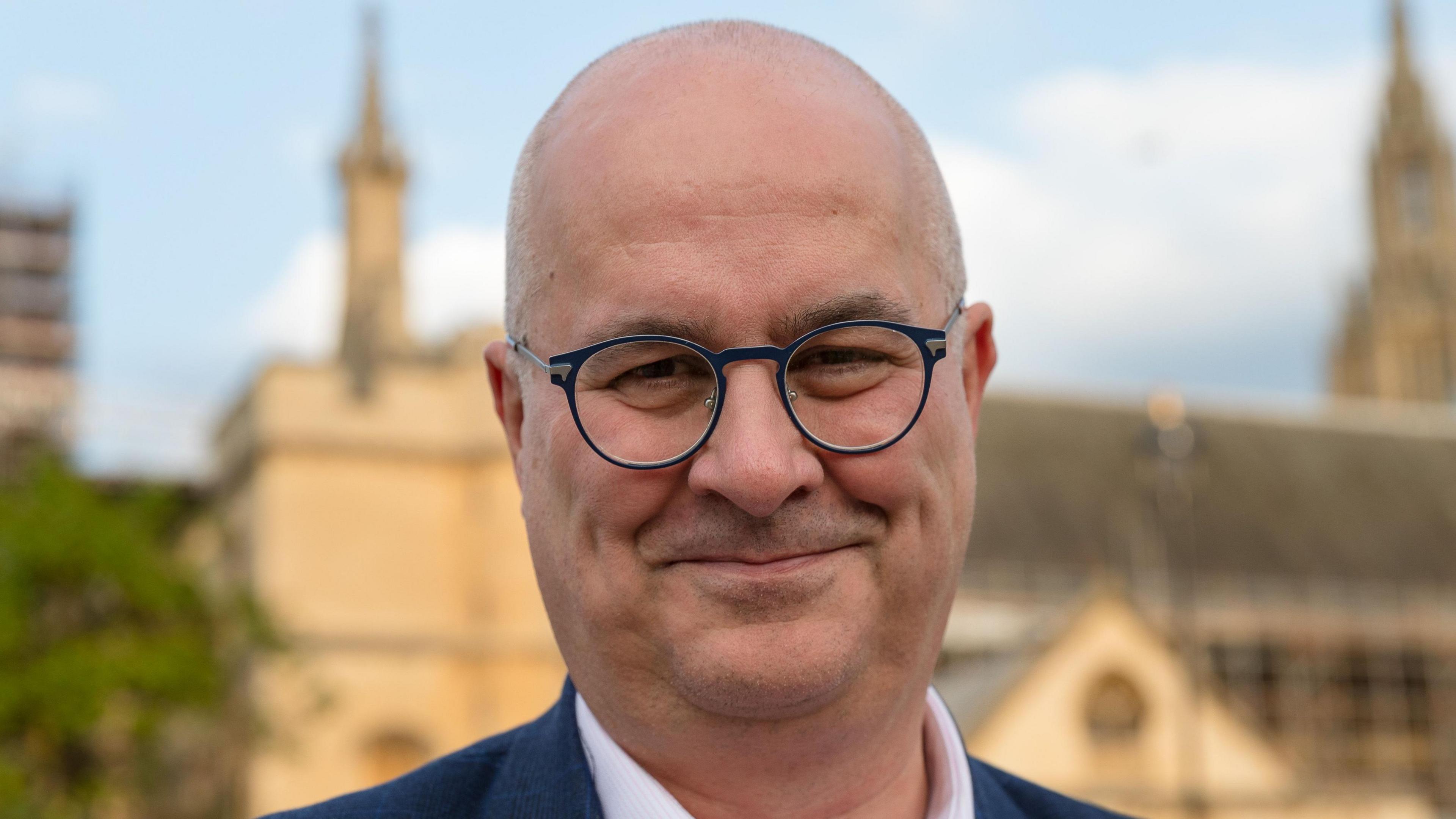
Iain Dale had been due to host an event in Liverpool in September
- Published
A venue in Liverpool has cancelled an event featuring the broadcaster Iain Dale after complaints over his publication of a senior police officer's memoirs on the 1989 Hillsborough disaster.
Liverpool Philharmonic Hall said it was "not appropriate due to local sensitivities" to host Mr Dale, who had been scheduled to present a spin-off from his LBC podcast For The Many in September as part of a national tour.
It followed complaints by survivors that it was "unacceptable" following his 2016 publication of a book by Sir Norman Bettison, who was accused of trying to blame Liverpool fans for the tragedy in which 97 supporters died.
In a website post, external, Mr Dale said he had previously hosted two events in the city and the venue's cancellation "didn’t show any backbone at all".
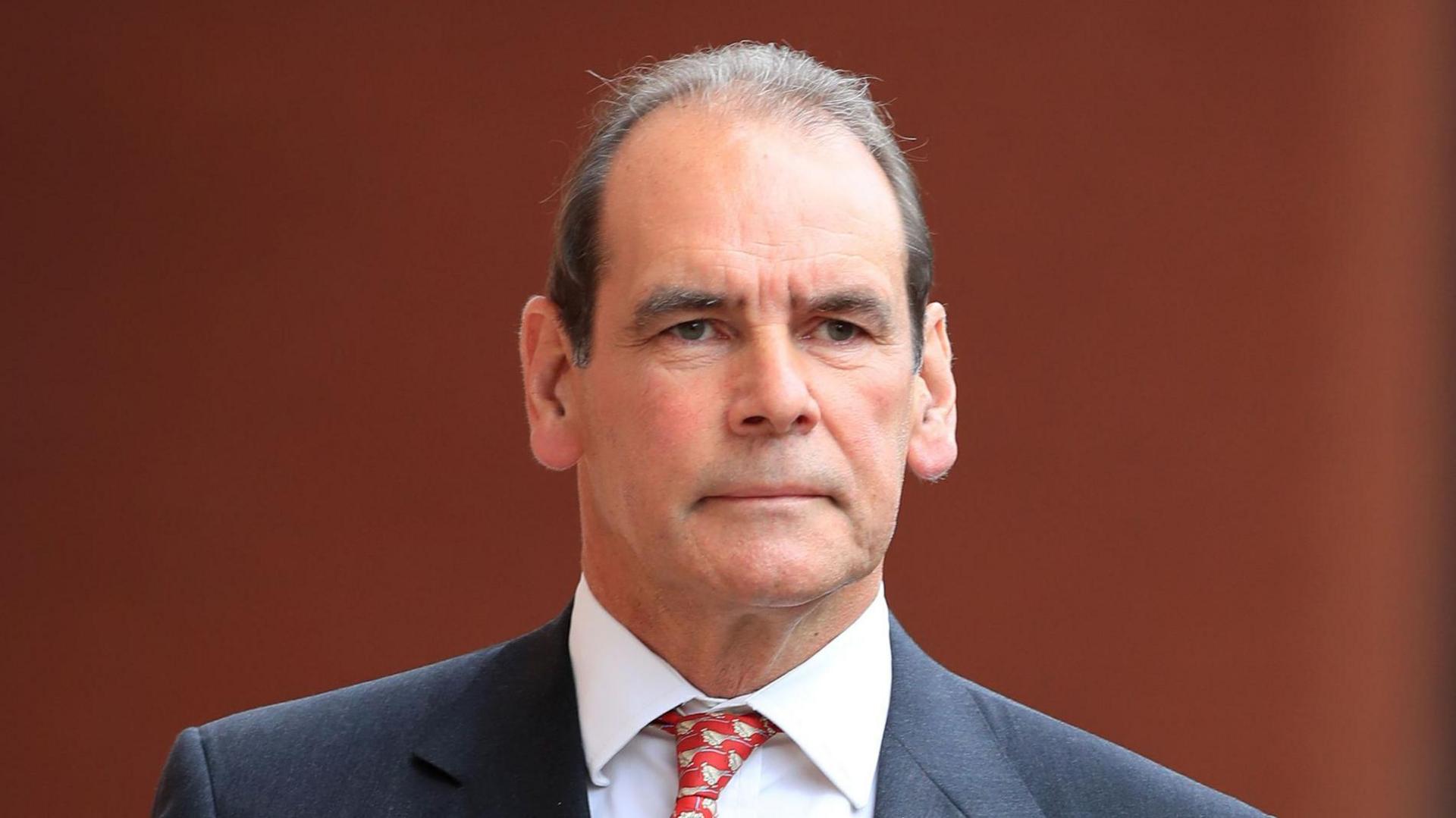
Sir Norman Bettison (seen here in 2017) also became Chief Constable of Merseyside Police in 1998 following a controversial appointment
In 2016, an inquest jury found Liverpool fans were not to blame for the disaster and instead blamed police failures, stadium design defects and a delayed response by the ambulance service.
Two years later, charges were dropped against Sir Norman, who was accused of telling lies about the "culpability of fans" and his role following the tragedy.
Prosecutors said there had been insufficient evidence and no real prospect of securing a conviction.
Shortly after the 2016 inquest conclusion, Mr Dale, who was then working at the firm Biteback Publishing, acquired rights to Sir Norman's book on the tragedy.
At the time, Mr Dale said: "While we deeply respect the rawness of emotions surrounding Hillsborough, we hope Sir Norman's voice can only add to the ongoing narrative and maybe shed some new light."
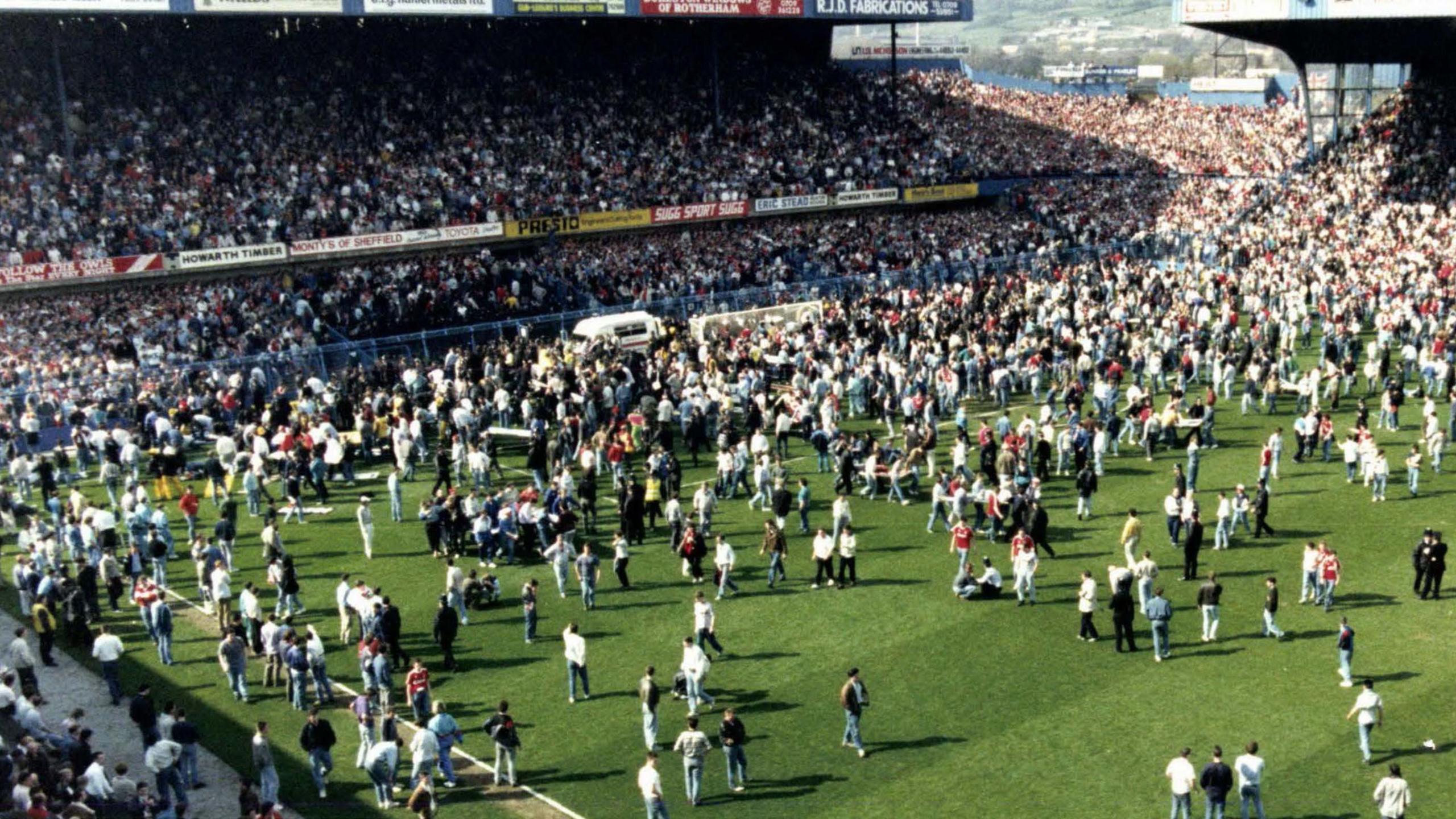
Fans had to get on the pitch to escape a fatal crush at an FA Cup game in the Hillsborough stadium in 1989
The group Hillsborough Survivors Support Alliance described the cancellation as a "correct decision".
Liverpool fan Neil Dunne, who led a social media campaign asking the venue to cancel September's event, told the BBC: "I don’t think it’s acceptable for [Mr Dale] to appear here, when he has been making money from books that profit from our misery and torment."
Mr Dunne, who has friends who survived the 1989 disaster, said he believed the Philharmonic Hall’s booking was "a complete oversight".
He said: "They've done some good things for campaigns to do with Hillsborough in the past.
"I thought all I needed to do was approach them and have a dialogue with them about it. I'm happy that they have responded in the way they did."
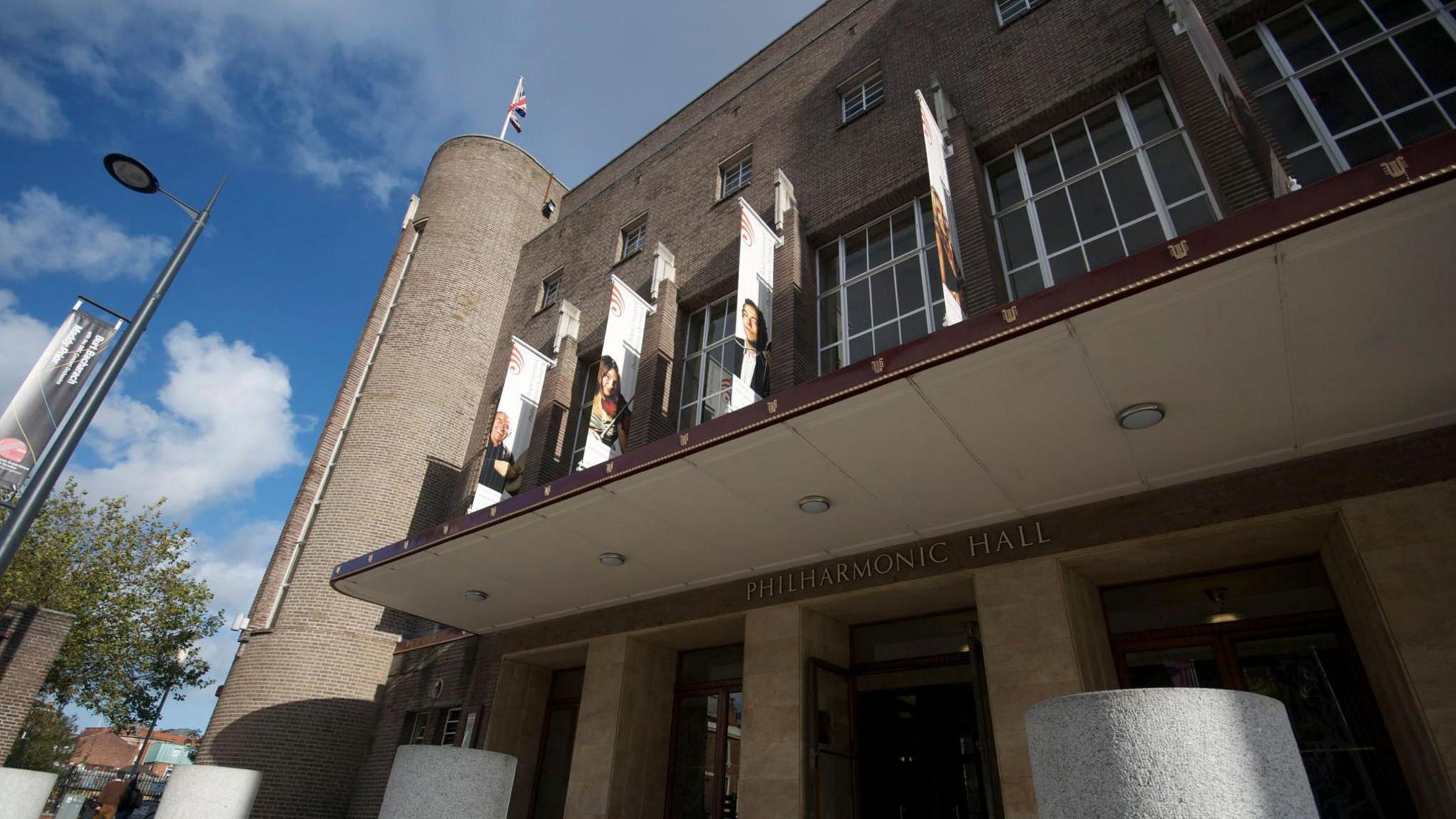
Liverpool Philharmonic Hall is one of the city's best-known venues
On Saturday, Mr Dale said: "Publishing books is all about freedom of expression. Even when it’s uncomfortable."
He described the Philharmonic Hall as being "cowed by a couple of Twitter trolls" and said they had given "in to the mob at the first sign of trouble", adding 250 people had been expected to attend his event.
A spokeswoman for the venue said: "Liverpool Philharmonic has made the decision that the event is not appropriate due to local sensitivities.
“We value the trust and support of our community and take our responsibility to uphold our shared values seriously."
Hillsborough disaster
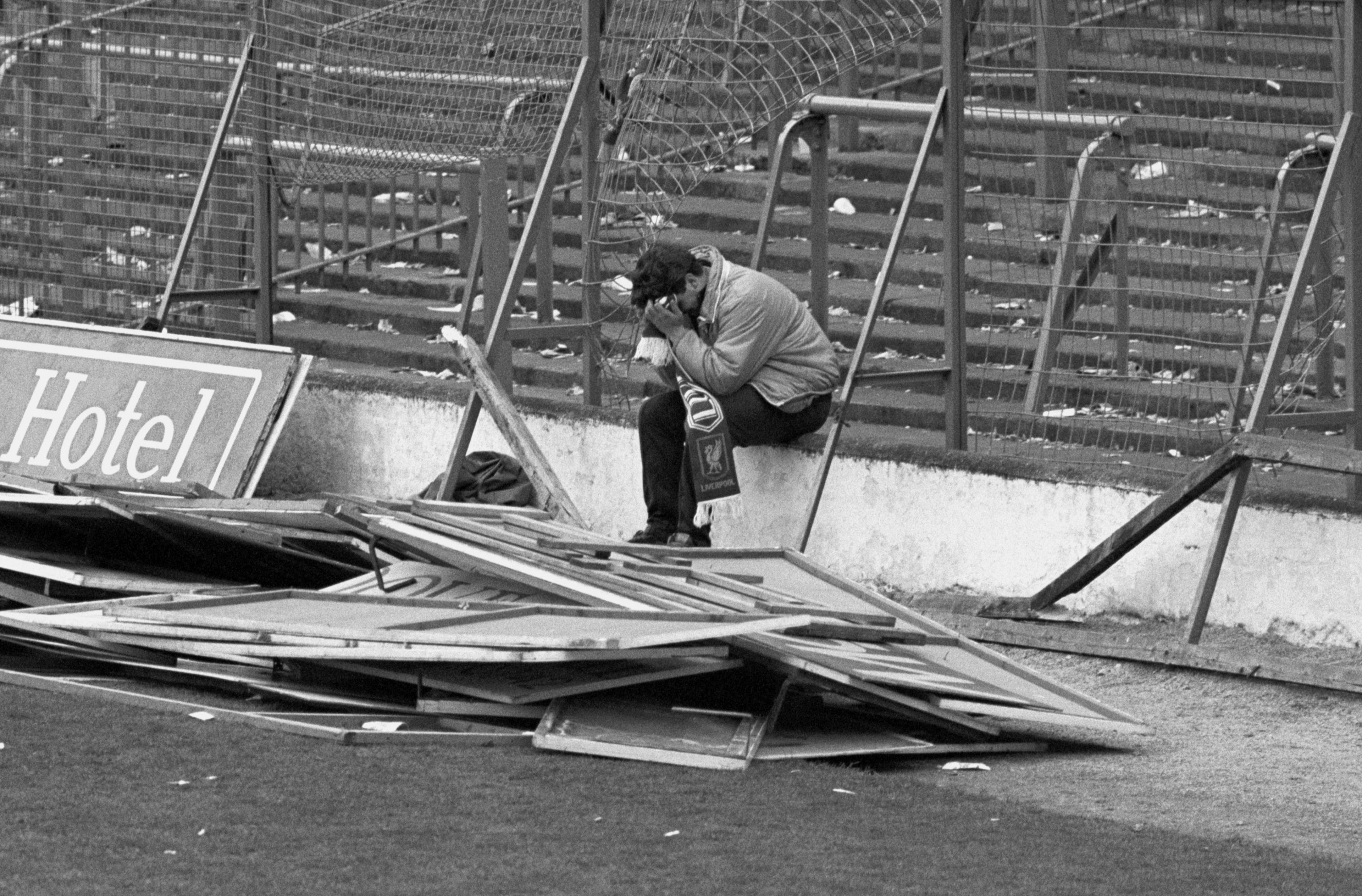
Ninety-seven fans died as a result of a crush at a game between Liverpool and Nottingham Forest at Sheffield Wednesday's Hillsborough Stadium in 1989.
In 2016, an inquest jury found that Liverpool fans were not to blame for what happened and those who died were unlawfully killed.
Jurors blamed police failures, stadium design defects and a delayed response by the ambulance service.
In 2021, South Yorkshire and West Midlands police forces agreed to pay damages to more than 600 people over a cover-up that followed the disaster.
Two years later, police forces apologised for "profound failings", saying they had "got it badly wrong" in the aftermath of the crush.
Listen to the best of BBC Radio Merseyside on Sounds and follow BBC Merseyside on Facebook, external, X, external, and Instagram, external. You can also send story ideas to northwest.newsonline@bbc.co.uk, external